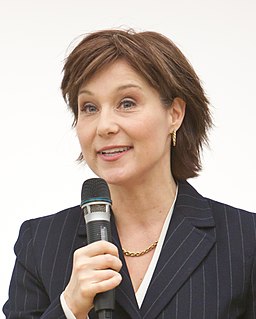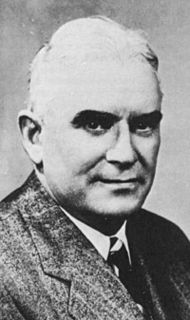| |||||||||||||||||||||||||||||||||||||||||||||||||||||||||||||||||||||||
75 seats of the Legislative Assembly of British Columbia 38 seats were needed for a majority | |||||||||||||||||||||||||||||||||||||||||||||||||||||||||||||||||||||||
|---|---|---|---|---|---|---|---|---|---|---|---|---|---|---|---|---|---|---|---|---|---|---|---|---|---|---|---|---|---|---|---|---|---|---|---|---|---|---|---|---|---|---|---|---|---|---|---|---|---|---|---|---|---|---|---|---|---|---|---|---|---|---|---|---|---|---|---|---|---|---|---|
| Turnout | 59.11% [1] | ||||||||||||||||||||||||||||||||||||||||||||||||||||||||||||||||||||||
| |||||||||||||||||||||||||||||||||||||||||||||||||||||||||||||||||||||||
| |||||||||||||||||||||||||||||||||||||||||||||||||||||||||||||||||||||||
The British Columbia general election of 1996 was the thirty sixth provincial election in the Province of British Columbia, Canada. It was held to elect members of the Legislative Assembly of British Columbia. The election was called on April 30, 1996, and held on May 28, 1996. Voter turnout was 59.1 per cent of all eligible voters. The election is notable for producing a "false-winner" outcome, rewarding a party that got second in the popular vote with a majority government.

British Columbia is the westernmost province of Canada, located between the Pacific Ocean and the Rocky Mountains. With an estimated population of 5.016 million as of 2018, it is Canada's third-most populous province.

Canada is a country in the northern part of North America. Its ten provinces and three territories extend from the Atlantic to the Pacific and northward into the Arctic Ocean, covering 9.98 million square kilometres, making it the world's second-largest country by total area. Canada's southern border with the United States is the world's longest bi-national land border. Its capital is Ottawa, and its three largest metropolitan areas are Toronto, Montreal, and Vancouver. As a whole, Canada is sparsely populated, the majority of its land area being dominated by forest and tundra. Consequently, its population is highly urbanized, with over 80 percent of its inhabitants concentrated in large and medium-sized cities, many near the southern border. Canada's climate varies widely across its vast area, ranging from arctic weather in the north, to hot summers in the southern regions, with four distinct seasons.

The Legislative Assembly of British Columbia is one of two components of the Parliament of British Columbia, while the other is Elizabeth II, Queen of Canada, represented by the Lieutenant Governor of British Columbia.
Contents
New Democratic Party leader and provincial premier Mike Harcourt had resigned as the result of a fundraising scandal involving one of the members of his caucus. Glen Clark was chosen by the party to replace Harcourt. Clark led the party to a second majority government, defeating the Liberal Party of Gordon Campbell. Campbell had become leader of the Liberal Party after Gordon Wilson had been forced out of the position because of his relationship with another Liberal member of the legislature, Judi Tyabji.
The New Democratic Party of British Columbia is a social-democratic provincial political party in British Columbia, Canada, which currently governs the province, and previously governed from 1972 to 1975, and then again from 1991 to 2001. Following the 2017 provincial election in British Columbia, the party formed a minority government via a confidence and supply agreement with the British Columbia Green Party, following the defeat of Christy Clark's British Columbia Liberal Party government by a confidence vote in the legislature.

Michael Franklin Harcourt served as the 30th Premier of the province of British Columbia in Canada from 1991 to 1996, and before that as the 39th mayor of BC's largest city, Vancouver from 1980 to 1986.

Glen David Clark is a Canadian business executive and former politician, serving as the 31st Premier of British Columbia from 1996 to 1999.
After Wilson was defeated by Campbell in the convention to choose a new leader, he and Tyabji left the Liberal Party to establish the Progressive Democratic Alliance. Wilson was able to win re-election, but Tyabji was not, going down to defeat with all of the other candidates fielded by the new party.
The Progressive Democratic Alliance (PDA) was a centrist political party in British Columbia, Canada founded by Gordon Wilson, Member of the Legislative Assembly (MLA) for Powell River—Sunshine Coast.
The once-dominant Social Credit Party collapsed. It elected Grace McCarthy as its leader in 1993, but she was unable to make a bid to get into the legislature until 1994, when she lost a by-election in the longtime Socred stronghold of Matsqui. Soon afterward, four of its remaining six members defected to Reform BC, leaving Social Credit without official status in the legislature. One more seat was lost in a by-election, reducing the party's one representation to one MLA, Cliff Serwa. However, Serwa retired before the election, leaving the party with no incumbents. Party leader Larry Gillanders withdrew from the race while the campaign was in progress, saying that all right wing parties should unite to topple the ruling NDP. The Socreds won only 0.4 percent of the vote and were completely shut out of the legislature. While the party still nominally exists, it has never elected another MLA, and even lost its registration from 2013 to 2016.

The British Columbia Social Credit Party, whose members are known as Socreds, was the governing political party of British Columbia, Canada, for all but three years between the 1952 provincial election and the 1991 election. For four decades, the party dominated the British Columbian political scene, with the only break occurring between the 1972 and 1975 elections when the New Democratic Party of British Columbia was in power.
Grace Mary McCarthy, OC, OBC, LLD, DTech, FRAIC (Hon.) was a Canadian politician and florist in British Columbia. A high-ranking member of the Social Credit Party of British Columbia, she was largely responsible for rebuilding that party after its defeat in the 1972 provincial election.

The Reform Party of British Columbia is a populist right wing political party in British Columbia, Canada. Although its name is similar to the defunct Reform Party of Canada, the provincial party was founded before the federal party was and it did not have any formal association with it. Their peak of support came in 1996 when they elected two members to the Legislative Assembly of British Columbia.
Reform BC held on to two of its four seats.
Although the Liberals won a larger share of the popular vote, most of their votes were wasted in the outer regions of the province; they only won eight seats in the Vancouver area. This allowed the NDP to win 6 more seats than the opposition Liberals, eking out a majority government.

Vancouver is a coastal seaport city in western Canada, located in the Lower Mainland region of British Columbia. As the most populous city in the province, the 2016 census recorded 631,486 people in the city, up from 603,502 in 2011. The Greater Vancouver area had a population of 2,463,431 in 2016, making it the third-largest metropolitan area in Canada. Vancouver has the highest population density in Canada with over 5,400 people per square kilometre, which makes it the fifth-most densely populated city with over 250,000 residents in North America behind New York City, Guadalajara, San Francisco, and Mexico City according to the 2011 census. Vancouver is one of the most ethnically and linguistically diverse cities in Canada according to that census; 52% of its residents have a first language other than English. Roughly 30% of the city's inhabitants are of Chinese heritage. Vancouver is classed as a Beta global city.
A majority government refers to one or multiple governing parties that hold an absolute majority of seats in legislature. This is as opposed to a minority government, where the largest party in a legislature only has a plurality of seats.





